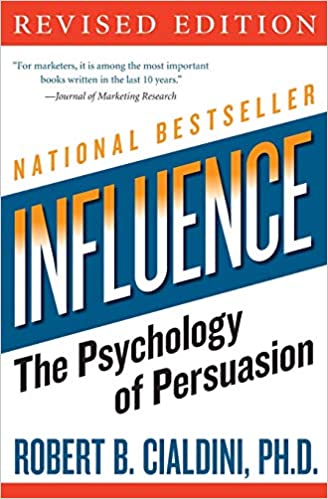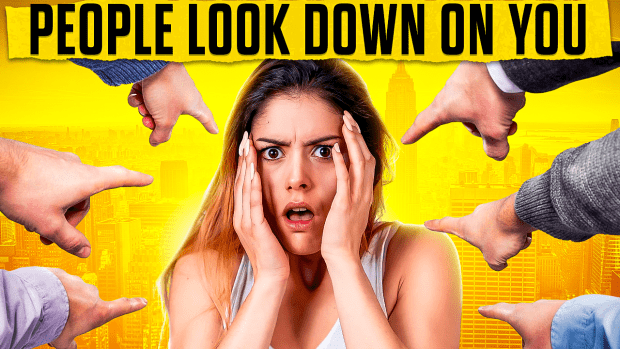
Influence
by Robert Cialdini
⏱ 16 minutes reading time
🎧 Audio version available
Reason 1: Envy and Jealousy
Envy and jealousy are powerful emotions that can make people act in ways that undermine others. When someone feels threatened by your accomplishments, talents, or possessions, they may resort to looking down on you as a way to protect their own fragile ego. They may belittle your achievements, downplay your skills, or undermine your success in order to make themselves feel better.
It’s important to remember that envy and jealousy are a reflection of the other person’s insecurities and not a reflection of your worth. By recognizing this, you can free yourself from the burden of their judgment and continue to pursue your goals.
Understanding their motivations can help you empathize with their insecurities, but it’s also crucial to protect your own mental well-being. Surround yourself with supportive people who celebrate your achievements and inspire you to reach for even greater heights.
Reason 2: Fear and Insecurity
Fear and insecurity are common driving forces behind the behavior of those who look down on others. When someone encounters someone who challenges their beliefs, abilities, or position, they may feel threatened and react by belittling or demeaning the other person. This behavior stems from a desire to maintain control and protect their own self-image.
Recognizing that their behavior is rooted in their own fears and insecurities can help you detach emotionally and respond with compassion. Instead of internalizing their negativity, focus on building your own self-confidence and resilience. Surround yourself with positive influences and engage in activities that enhance your self-esteem.
By understanding that their behavior is a reflection of their own fears, you can free yourself from the burden of their judgment and continue to pursue your own path with confidence.
Reason 3: Misunderstandings and Stereotypes
Misunderstandings and stereotypes often lead to judgments and the act of looking down on others. People may form preconceived notions based on limited information or biased perspectives. These assumptions can create barriers in communication and hinder the development of meaningful relationships.
To overcome this barrier, it’s essential to challenge stereotypes and promote open-mindedness. Educating others about your experiences and perspectives can help break down these misunderstandings. By fostering dialogue and understanding, you can bridge the gap between different cultures, backgrounds, and beliefs.
It’s important to remember that you have the power to challenge stereotypes and redefine perceptions. Embrace your uniqueness and share your story to inspire others to break free from their own biases.
Reason 4: Lack of Empathy and Compassion
A lack of empathy and compassion can contribute to the act of looking down on others. When individuals fail to understand or relate to the experiences and challenges of others, they may dismiss or devalue their struggles. This lack of empathy can lead to judgment and a sense of superiority.
To overcome this barrier, it’s crucial to foster empathy and compassion in ourselves and others. By practicing active listening, seeking to understand different perspectives, and demonstrating kindness, we can create a more inclusive and accepting society.
Remember, empathy is a powerful tool that can bridge the gap between individuals and foster understanding. By cultivating empathy within ourselves and promoting it in our interactions, we can break down the barriers that lead to judgment and division.
Reason 5: Social Conditioning and Cultural Bias
Social conditioning and cultural bias play a significant role in shaping our beliefs and attitudes towards others. From a young age, we are exposed to societal norms and values that can perpetuate stereotypes and reinforce judgmental behavior. These biases can manifest as unconscious prejudices that influence our perceptions and interactions with others.
To overcome this barrier, it’s important to challenge our own biases and engage in critical self-reflection. By questioning our assumptions and seeking to understand different cultures and perspectives, we can break free from the limitations imposed by social conditioning.
Educate yourself about different cultures, engage in diversity and inclusion initiatives, and actively challenge stereotypes and biases. By doing so, you can contribute to creating a more accepting and inclusive society.
Reason 6: Personal Insecurities and Projection
Personal insecurities often drive individuals to project their own feelings of inadequacy onto others. When someone feels insecure about their own abilities, appearance, or achievements, they may look down on others as a way to validate themselves. This projection can be a defense mechanism that allows them to avoid confronting their own shortcomings.
To overcome this barrier, it’s essential to recognize that their judgment is not a reflection of your worth. Focus on building your own self-confidence and self-worth. Surround yourself with supportive individuals who lift you up and reinforce your positive qualities.
By understanding that their behavior is rooted in their own insecurities, you can free yourself from the burden of their judgment and continue to pursue your own path with confidence.
Overcoming Barriers: Building Self-Confidence and Resilience
Building self-confidence and resilience is key to overcoming the barriers created by the judgments of others. By recognizing your own worth and embracing your unique qualities, you can rise above the negativity and reclaim your power. Surround yourself with positive influences, practice self-care, and celebrate your achievements, no matter how small.
Developing resilience is equally important. Resilience allows you to bounce back from setbacks and challenges, emerging stronger and more determined. Cultivate a growth mindset, learn from your experiences, and focus on personal growth.
Remember, your worth is not defined by the opinions of others. By building self-confidence and resilience, you can navigate the judgments of others with grace and emerge stronger on the other side.
Related: 5 Simple and Effective Self-Improvement Tips to Help You Become a Better Person
Empowering Others: Fostering a Culture of Inclusion and Acceptance
In addition to empowering yourself, it’s important to empower others and foster a culture of inclusion and acceptance. By promoting empathy, kindness, and understanding, we can create an environment where judgment and discrimination have no place.
Be an ally to those who face judgment and discrimination. Stand up against prejudice and challenge discriminatory practices. Educate others about the importance of embracing diversity and celebrating differences.
By fostering a culture of inclusion and acceptance, we can break down the barriers that divide us and create a world where everyone feels valued and respected.
What Is Snapreads?

With the Snapreads app, you get the key insights from the best nonfiction books in minutes, not hours or days. Our experts transform these books into quick, memorable, easy-to-understand insights you can read when you have the time or listen to them on the go.
